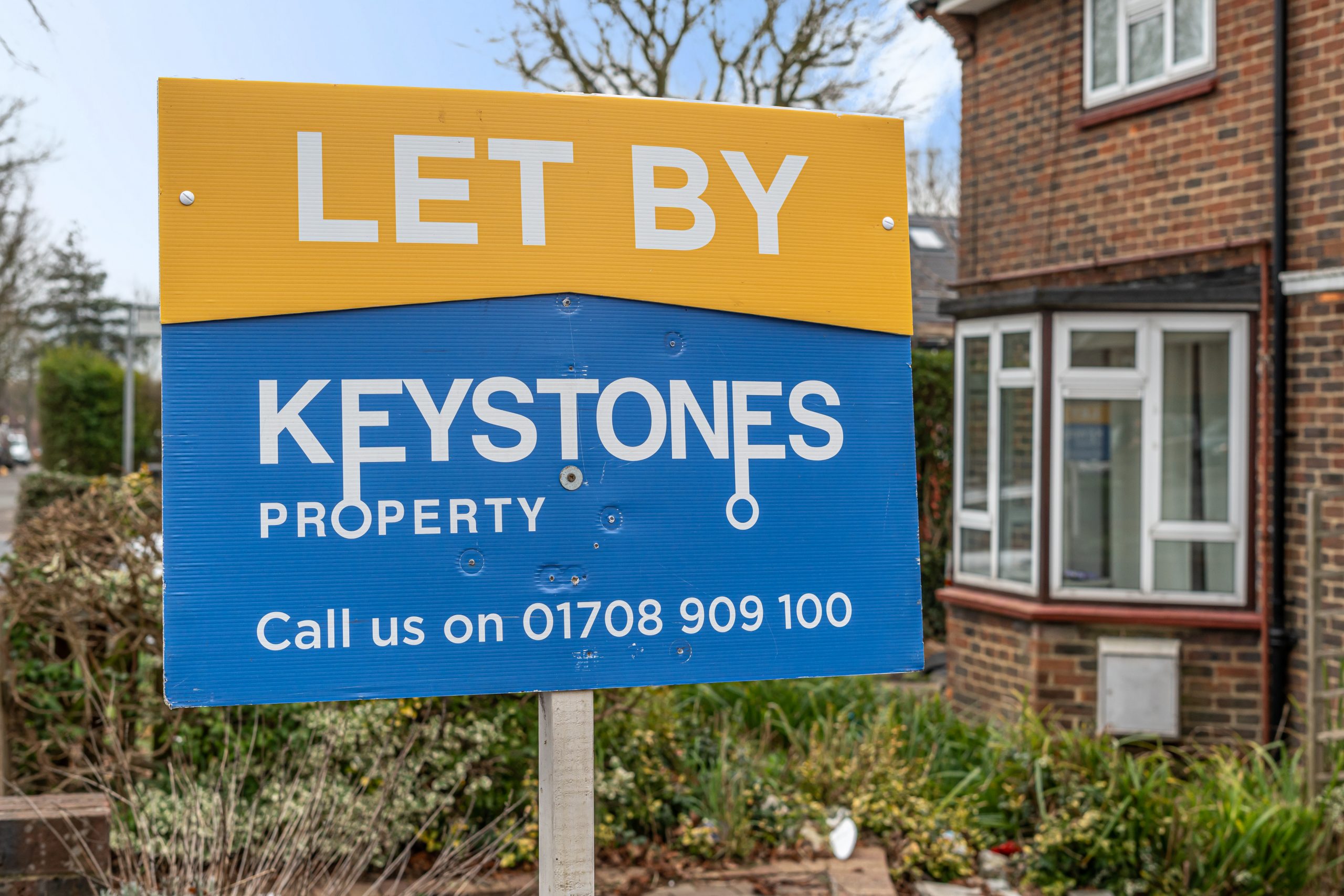We have plenty of market appraisals at Keystones Property where our sellers are looking to purchase a new build property and we tend to encounter the same questions time and time again. The question that presents itself is in regards to the purchase of an off plan new build and when to sell your own home. So, what is the answer?
This is a very common dilemma nowadays, you are in a position where you want to move house and you are looking at new build properties, which have a completion date in the future, maybe a year or so away and they want you to fully commit to the purchase of the new build.
However, there is a problem, you need to sell your existing home in order to fund the new build.
The new build developers want you to exchange the property within 30 days but complete it in a year or so time.
What do you do? This is a big question for people, and you will not be the first nor the last to have this dilemma.
We have sold many houses around the Romford area where the owners were in this situation, and there are solutions. You have a few options and I will go through those that are relevant, and what they mean for you.
Sell your existing home
A new homes developer will not usually accept your offer and take the property off the market until they know that your home is sold subject to contract, the issue here is it could be more than a year away until you actually move into your new place.
Selling your existing property is an option, but just make sure that the estate agents that are selling your home are completely aware of the situation at hand.
We have done this a few times and been open and honest with prospective buyers before a sale. We would tell them that our owners can exchange but cannot complete until a much later date when their new build home is finished. This way the buyers have an option and you have been upfront about the situation, therefore, no deception has taken place and your conscience is clear moving forward.
In my experience, some buyers will not like this and therefore not hold out for you, but many first-time or unincumbered buyers will not mind if they know an approximate timeline.
However, you still have other options.
You could move out of your home
This is a valid option for your sale, if you get the right price then you could rent for 6 months or so until you complete on your new build purchase, you can always put your un-needed essentials into storage. Storage is relatively cheap nowadays (depending on how much stuff you have).
My advice would be to get an idea of weekly storage container costs and property rental amounts, that way you can budget for what you need.
Try to obtain an idea on storage costs in advance, see the link: https://www.safestore.co.uk/
I would personally advise you to delay moving out for as long as possible just so that you are in control.
The great thing about moving out of the property is that you can sell and complete your existing home, have the money in the bank and be unencumbered when purchasing the new build. You can take your time and move your belongings at a slower, more manageable pace into the new build instead of a scheduled sale / purchase completion where it is done all on the same day.
This way reduces the stress of the situation, but it does mean that you are moving home a few times which could be unsettling and it also means that you are technically homeless for a certain period and some people do not like to be off the housing ladder at all – even in this situation, these are the cons.
If you choose not to rent, it could be living with friends or family, which for some people is not ideal, and awkward, so choose your options wisely and thoroughly think things through before getting emotionally enticed by your new build purchase. Remember there are always other fish in the sea.
Part Exchange Schemes
This is another option that a lot of people choose to use. Doing a Part Exchange takes the stress away from your whole situation, the house builder who is constructing the new build is purchasing your existing home from you.
There is less ‘faffing around’ and the house builder will purchase your property outright (providing there are no defects or issues) and you can purchase your new build without the worry of the timeframe, moving into rented accommodation, or with friends.
Although you will be taking a discounted rate on the sale of your existing home, it does mean that the stress is taken out of the situation and potentially rental costs too, which could amount to more than the 10% or so discount that the house builder will buy your existing property for, so this could be a good deal for you.
The sale is guaranteed, you avoid the complications of the open market, avoid chains and you get an easy purchase, just for a reduced rate.
What about Assisted Move Schemes?
This is similar to the part exchange option and depending on the housebuilder, they may or may not offer it as a service but this is where the developer/house builder will take over the marketing and selling aspect of your existing home.
The developer takes total control to ensure that you can sell your home to afford the new build. So, it works well for the developer too since they have an element of control in the situation, and you can just leave it in their capable hands.
The house builder will put your home on the open market with a few estate agents, and then, the house builder will handle the sale, including the negotiation of the price, whether the price needs to be reduced and the conveyancing side of things.
Depending on what type of person you are, this can be a great option because the housebuilder is in control meaning that you can reserve your property with the housebuilder, and they have the assurance that you will be a good buyer provided that your property sells.
The disadvantage of this formula is that you must pay estate agency fees like a normal seller and that you may sell your property for undervalue as the housebuilder will just want to get it sold as soon as possible to afford the new build purchase, they are not really concerned about holding out for a substantial amount, it is strictly business for them.
The housebuilder will also insist that you use their mortgage broker and conveyancing service in many cases, and should you pull out then you will likely lose your reservation fee on the new build and potentially other costs involved too.
Rent out your existing property
If you can afford it, then this is a great option as it means that you own an asset as well as the property that you live in, so makes a great investment option if you have the means to do it.
My advice is to speak with a reputable mortgage broker before expressing an interest in this option as stamp duty costs increase on second homes and interest rates on buy to let mortgages are generally higher.
It is worth entertaining this idea if you have lived in your home for a long time and have built up quite a bit of equity in the property. A lot of people do what is called a ‘Let to Buy’ which is a mortgage term to take the existing equity out of your property and use it as a deposit for the new property meaning that you will have two mortgages, one on your existing home and one on the new build.
A valuation of your existing property by a few estate agents is your first point of call to get an idea of value and rental price – you might want to check out our instant valuation tool – then speaking with a mortgage broker is your next step so that you can get an understanding of mortgage costs.
When you obtain a valuation, ask the estate agents (assuming they also do lettings) to give you a rental valuation and what you would need to do to get the property up to a rentable standard.
This will give your mortgage broker some sums and figures for the broker to calculate cash flow when it comes to renting out your existing place and purchasing your new build home.
Bridging Loan
Firstly, please note that a ‘bridging loan’ is a massive risk. I have to point that out and I would never push or advise someone to obtain a bridging loan unless they know what they are doing first and what they are getting themselves into, but it is an option that you might like to consider.
A bridging loan is a loan to ‘bridge the gap’ and it is essentially a short-term loan to get you from A to B quickly with the ability to pay the loan back quickly, you usually pay a much higher interest rate on the loan too.
It can help with your new build purchase by raising the collateral to use on the purchase whilst keeping your existing property short term, then for you to list your existing property on the open market with an estate agent to sell it. However, stress is the time factor here, hence, it is a massive risk.
This is fine if everything goes to plan, you sell your home quickly to a buyer and it goes through. The issue does arise if the sale falls through or something goes wrong, you are stuck with a loan at a high interest rate and your existing property too. If the market or economy takes a turn for the worse then you could give yourself a big problem, hence why I advise against it, as it is too much pressure and as mentioned twice before, a massive risk and burden.
But it is an option, therefore, if you know what you are doing then fine, I leave it to you.
I hope this helps you with a few jargon busters and gives you food for thought about what you could do.
If you do need any further information, then please give the team at Keystones Property a call on 01708 909100 or email [email protected].
More from the Keystones learning hub
Keep updated with what's going on in your local area. Our latest news provides up-to-date information on everything regarding the local property market, for everyone including homebuyers, sellers, tenants, and landlords.
Section 21 – Abolishment

19 December, 2024
Will Pets Be Allowed In Properties With The Renters Rights Bill?

19 December, 2024
Banning Discrimination – Renters Rights Bill

19 December, 2024

Come and see us face to face
Keystones are Open 6 days a week. Pop in, have a Tea or Coffee as we always have people on hand to help you.
Keystones Property
-
Keystones Property Collier Row
13 Clockhouse Lane, Collier Row, Romford, Essex, RM5 3PH, United Kingdom -
Email: [email protected]
-
Telephone: 01708 909 100







